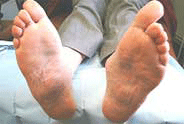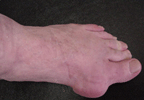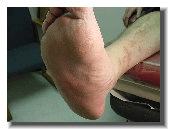Some idiot doctor told my husband that "a carb is a carb is a carb". I disagree!!
While it may be true that the word “Carbohydrate” can be applied equally to all types of carbohydrates, there are different types of carbs and they act quite differently.
They are all starches.
They all eventually convert to sugar (glucose).
There are 3 common types of carbs in foods:
Sugar
Starch
Dietary Fiber
The glycemic index (GI) is a measure of the speed at which a carbohydrate raises blood sugar levels. From this, a high glycemic carb is one which raises blood sugar levels very quickly. The spike in blood sugar creates the insulin response which means that your body will produce high amounts of insulin to return your blood sugar back to normal levels. This is done by converting all the glucose into fat which gets stored in your body. This results in low blood sugars and the craving for simple carbs.
High Glycemic Carbs used to be known as simple carbohydrates. They are already in their simplest form, easily digested and enter the blood at a fast rate. They also raise blood sugar levels fast.
candy, cookies, white bread, bagels (refined/processed High GI carbs)
potatoes, corn, carrots, pumpkin, (unrefined High GI Carbs)
Low glycemic carbs used to be complex carbohydrates. They release glucose into the blood at a slower pace, cause a smaller rise in blood sugar.
Whole wheat pasta and bread, spaghetti (refined Low GI Carbs)
plums, peas, spinach (unrefined Low GI Carbs)
These are only quick samples. Complete lists can be found by googling the topic.
The carbohydrate cycle in the body:1. When you eat sugar or any other carbohydrate, it is converted into a simple sugar, which goes into your bloodstream.
2. We can't make sugar in this form. What is required is insulin, which makes it possible for blood sugar to be absorbed and metabolized by our cells.
3. When too much sugar enters the bloodstream, the pancreas overworks to produce enough insulin to metabolize the sugar.
4. If you regularly eat too much sugar, refined carbohydrates or just plain over eat, the pancreas "learns" to over produce insulin.
5. The pancreas continuously drips insulin into the bloodstream, gradually reducing the blood sugar level; eventually lowering it too much.
6. The result is that a couple of hours after eating too much sugar or too many carbohydrates, you may experience a low blood sugar level.
7. In this state, people may feel irritable, fatigued, stressed and hungry. Then, they may want something to eat, and usually its sugar or something sweet they reach for.
8. If you then take a pick-me-up sweet, it further stimulates insulin production so that, after the initial rise, the blood sugar level drops even more than previous.
9. This is experienced as still more stress, more hunger, and the cycle repeats itself.
10. If these eating habits continue, the pancreas - overworked and stressed - slows or stops insulin production. The result is high blood sugar, sugar in the urine, and even diabetes.
So, simple math here. If your pancreas no longer produces insulin, or not enough insulin, you have to either inject it into your body, or take a pill. But one way or the other, you have to get it in there to get the sugar out of the blood and into the muscles.
Artificial sweetener acts almost the same way. While it has no "sugar" in it...it acts to supress the appetite. Combine that with low blood sugar, you get hungry, grab for something sweet to give you energy....and you set the same cycle into motion.
Stimulants like caffeine, stimulate the adrenal gland to produce epinephrine.
Epinephrine stimulates the pancreas to secrete insulin, lowering blood sugar level, but if the pancreas can't produce insulin, then the stimulant really acts to raise blood sugars overall.
Research has shown that excess consumption of aspartame slowly begins to destroy neurons. Not so good for a diabetic with neuropathy.
The dangers of diet soda:The brain has a conditioned response in reaction to something that is sweet called the cephalic phase response. The body perceives that the arrival of something sweet means "energy". When the taste of an artifical sweetener such as aspartame stimulatesthetongue, the brain programs the liver to prepare for the arrival of new energy (sugar) from outside.
The liver, in turn, stops the manufacture of starch and protien from reserves in the body, and instead begins to store the glucose (energy) that is circulating in the blood stream.
Foods having a sweet taste without the accompanying calories stimulate the taste buds, creating and urge to eat and thus overeat.
It is the liver that produces the signals and the urge to eat The cephalic phase response triggers the release of insulin, which stores sugar in the blood stream.
This creates low blood sugar which leads to the development of increased cravings and appetite.
Studies have shown that htis urge to eat more food after using artificial sweeteners such as aspartame can last up to 90 minutes after the meal or snack.
so while aspartame itself may not have a GI impact...it still has an impact on what happens inside the body.
If you read the book "Sweet Poison" by Dr. Janet Starr Hull, she will tell you that she is convinced that long term use of aspertame can cause diabetes. Hmmmm......and it doesn't have a single carb in it!
Then there's a US healthy study released 31 Oct 2009 that will tell you regular consumption of artifically sweetened sodas can affect kidney function over time. (OK, so to some of you reading, note that the word here really is affect, not effect!) (LOL!) AND this same study also showed that artificial sweeteners can trigger high insulin levels which promotes the storage of fat.
Yet again....where are the carbs?
HUGE NOTE TO SELF - He doesn't even need to eat to get himself into the roller coaster cycle of highs and lows....all it takes is a diet coke!!!
Another thought on soda. I use it to clean the acid off my car battery. Ever try that? Works just great! I also use it mixed with water to polish silver. Whatever it is that cleans my battery and polishes my silver....is being filtered through my kidneys every sip of the way. So for a diabetic with low functioning kidneys like my husband that still downs 8 or 9 cans of diet soda every day....just consider what it's doing to him!
My mom is a retired nurse practitioner. I knew plenty of diabetics when I was a kid growing up at home. We NEVER took them anything remotely sweet. Yet today, doctors, nurses, nutritionists, etc., are all telling their patients the same line: "a carb, is a carb, is a carb." Do you think it could be that their source of income is derived from having sick patients? Consider the small possibility that diabetes was wiped off the face of the earth? Could it simply be that the medical industry is actively wanting to keep this disease around? If they really wanted to eliminate it, wouldn't we be fighting to take sweeteners off the market? Get good nutritional education in grade schools? Start with a healthy cafeteria menu?
Well, at least tell existing dibetics that there are HUGE differences in how carbs are consumed in the body and that perhaps, just perhaps, a piece of candy is a whole lot worse than a stick of cheese!
Conclusion? A carb is NOT a carb, in fact, it doesn't even have to be a carb, it can be a fake carb (sweetener) when it comes to someone who has diabetes.
DW


